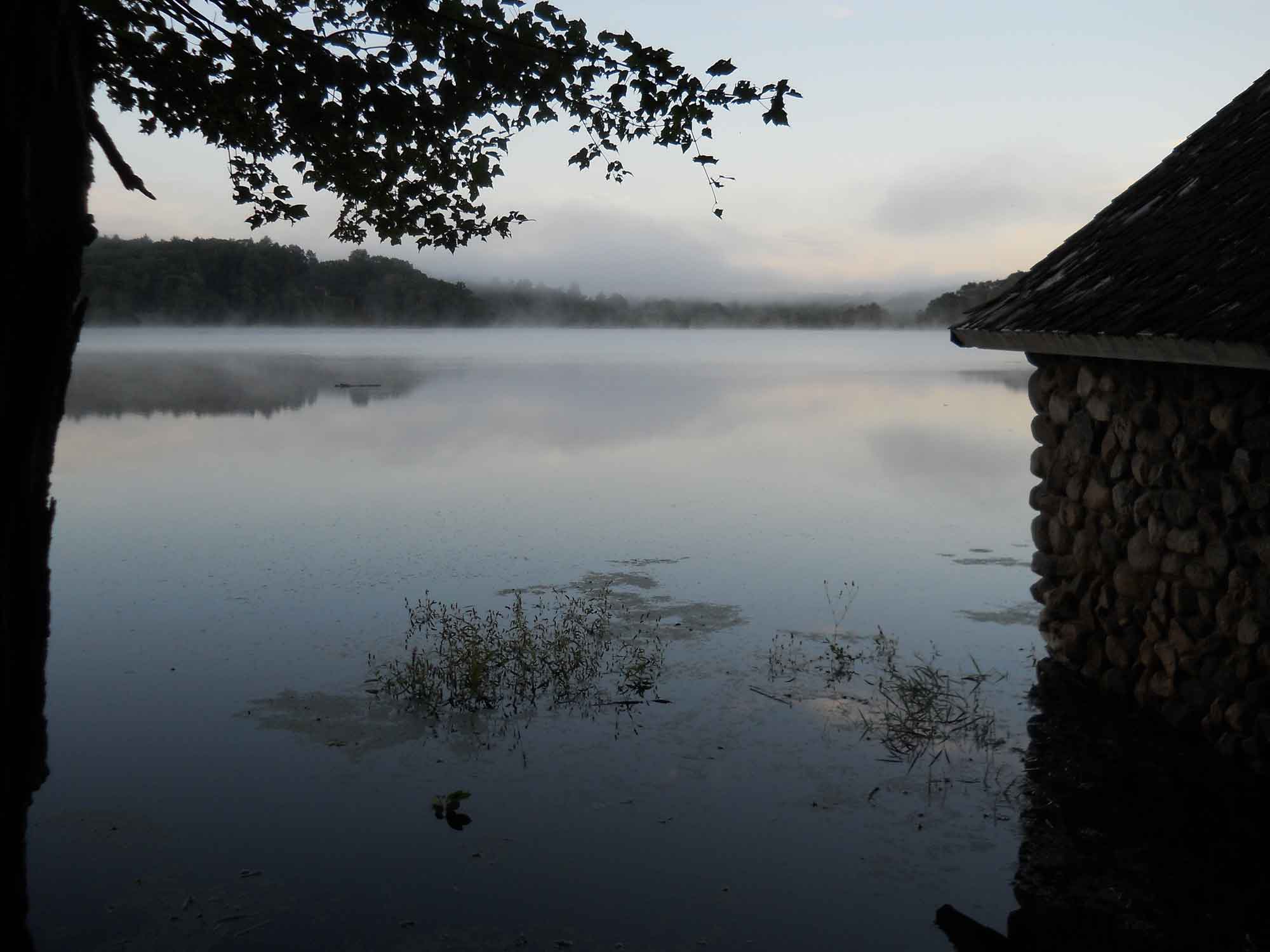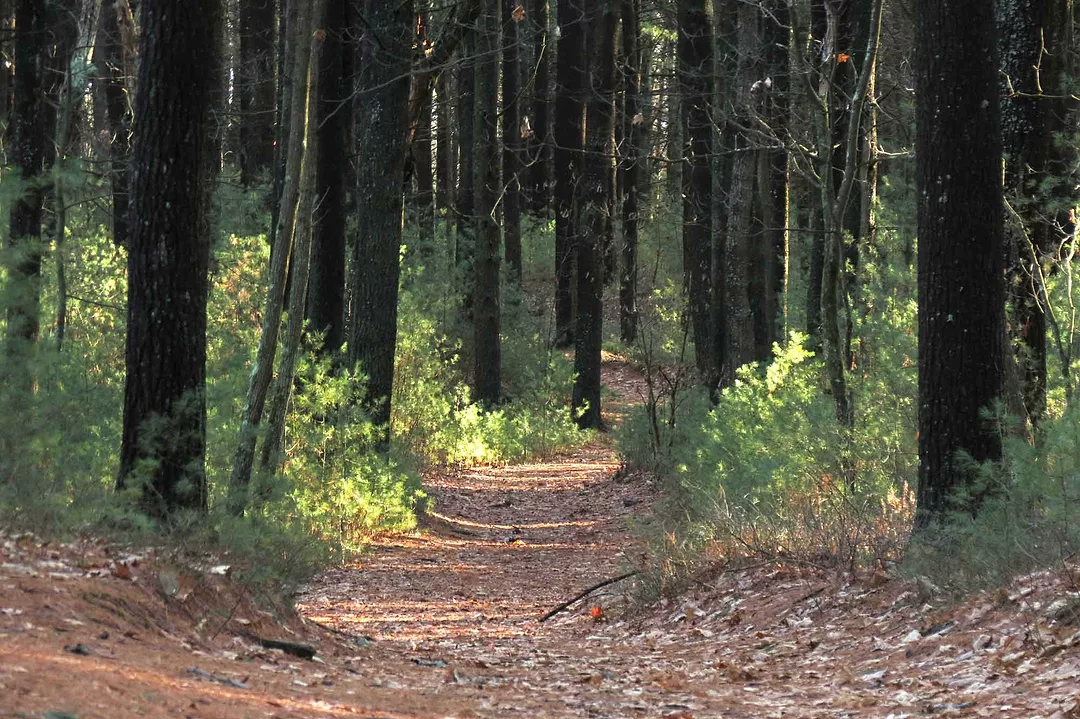Concord Land Conservation Trust’s mission is to preserve and protect open space in Concord in perpetuity. Currently, the Trust owns more than 900 acres in Concord and holds conservation restrictions on an additional 265 acres. The Trust’s largest property, Wright Woods, consists of over 300 acres surrounding Fairhaven Hill. The land is bordered by the Sudbury River, the Walden Pond Reservation, and Fairhaven Bay and offers some of the most beautiful walks and vistas in Concord.
Wright Woods is remarkable in part because it is surrounded by other preserved open spaces. In addition to the waterways just mentioned, the Woods borders or lies close to the Town of Concord’s Town Forest and Adams Woods conservation land, the Conantum common land, lands preserved by the Walden Woods Project, and conservation land in Lincoln. The ecological and conservation value of Wright Woods is greatly enhanced by the integral part it plays in the heart of this much larger protected natural landscape, which totals well over 2,000 acres.
Concord Land Trust did not acquire Wright Woods in one piece, and neither did the woman who donated most of it to the Trust. Over approximately fifty years, George Frederick Robinson (1860-1949) and his daughter Helen Robinson Wright (1889-1978) acquired almost 240 acres near Fairhaven Bay. When the Land Trust was created in 1959, with Mrs. Wright’s help, she donated over thirty-four acres. Her generous gifts continued over the years until her death, when she left the Bay House (now removed) and its stone boathouse (still standing) and the nearby “Staples Camp” to the Trust in her will. The two houses at Staples Camp are currently rented by the Trust to descendants of the Robinson family.

The Robinson sisters (Mary, Ruth and, on the right, Helen)
| Courtesy of Concord Land Conservation TrustAdditional gifts added to Wright Woods include those from Eric Parkman Smith, Mary Thompson, and Eunice Knight. The most recent was Mary Seton Abele’s donation of thirty-three acres on Fairhaven Hill. The Hill, once open farmland with an orchard of 300 peach and apple trees, is occupied today by several homes and is surrounded by woods and walking trails.
Interesting sites abound in Wright Woods. After the Civil War, a water park was created on the west shore of Walden Pond. A ropewalk footbridge over the railroad tracks by the Pond connected the beach to a bicycle racetrack and fairgrounds in what is now Wright Woods. The park burned down in 1902, but a trace of the racetrack can still be discerned in the Woods.
This was not the first fire in the Woods. In 1844, after fishing in Fairhaven Bay, Henry David Thoreau and his friend Edward Hoar built a fire in a tree stump near the Bay to cook fish chowder. The wind blew an ember from the fire into the dry woods, and the two men were unable to stop the fire from spreading. After running to town to alert the authorities, Thoreau watched the fire from the impressive Fairhaven Cliffs. The fire consumed over 300 acres and earned Thoreau the sobriquet “woods-burner” in Concord.
The most recent fire in the area occurred in 2019 when the house that Charles Francis Adams III, a great-grandson and great-great-grandson of two U.S. presidents, built on Fairhaven Hill in 1899 burned down. The house (which has since been reconstructed) was visible from a trail traversing private property along the Sudbury River connecting the Land Trust’s Wright Woods with the Town of Concord’s Robinson Well.

View from the trail along Fairhaven Bay
| Courtesy of Concord Land Conservation TrustOne of the most pleasant walks in Wright Woods parallels the Sudbury River; it enters from land owned by the Walden Woods Project off Sudbury Road and connects to the Wright Woods through private property. After reaching the Woods near the Fairhaven Cliffs, the trail ascends a hill where a log bench offers a view of the Sudbury River and the Conantum common land. Trails then run to a knoll on Fairhaven Bay, called Fairhaven Overlook, the site of the former Bay House. G. Fred Robinson first built a summer camp here in 1888, which was replaced in 1933 after a fire burned down the original. The site commands what may be the most beautiful view in Concord. Today, all that remains of the house are stone walls and a large terrace that overlooks Fairhaven Bay, a charming boathouse and, across the Bay, “Scout Island,” a favorite canoe stopping point, donated to the Land Trust in 1981 by Edwin D. Brooks Jr. With the assistance of a generous grant, the Land Trust has recently made improvements to the Overlook, such as removing invasive plants and planting a mix of native tree and shrub species, including white oaks, gray birches, and American hazelnut. A hill rising to the west of the site offers another striking view of the Bay and contains a memorial stone in honor of Nat Marden, the Land Trust’s former Property Manager and a grandson of Helen Wright.
Another series of very pleasant trails starts near Arena Terrace. Park on Arena Terrace and proceed to the Land Trust kiosk near the mailbox for 160 Arena Terrace. From the kiosk, a trail crosses the gravel road and heads southeast to Walden Pond (the road is closed to cars except for residents of the houses at Staples Camp). From Walden, a trail heads southwest past a lovely series of glacier kettle holes known as the Andromeda Ponds. After passing the Andromeda Ponds, visitors can turn left to loop through Lincoln’s Adams Woods, or turn right to where the trail soon divides to go south to Fairhaven Bay or loop north toward Arena Terrace. The trail looping north was recently renovated by a Land Trust volunteer project in cooperation with the Appalachian Mountain Club.
The sheer size of Wright Woods and the surrounding protected land means that visitors who are not well acquainted with the Wright Woods are advised to bring along a trail map or take a photo of the map at the entry kiosk. The network of trails can be confusing even for persons who have visited Wright Woods on multiple occasions, and cell phone coverage is spotty.
The solitude and tranquility of Wright Woods and the surrounding waterways make it a special place. A trail map and more information are available at concordland.org, and new members joining the Concord Land Trust receive the Trust’s 22-page Trail Guide.


